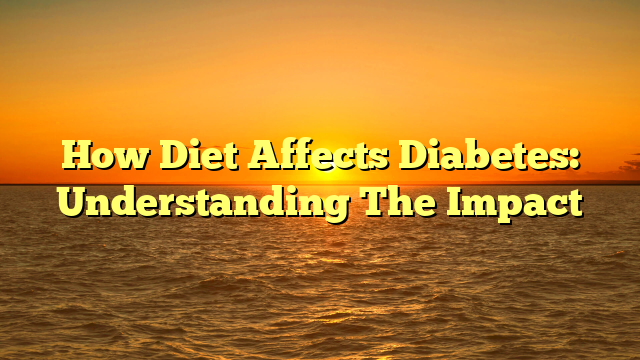Diet vs Fasting: Exploring Healthful Eating Options
Diet vs Fasting…When it comes to healthful eating, many people are familiar with traditional dieting for weight loss. However, there is a growing interest in alternative approaches such as calorie restriction and fasting diets. While these eating patterns may seem similar, they have distinct differences and unique benefits. In this article, we will explore the differences between dieting and fasting, and delve into the potential health advantages they offer.
Diet vs Fasting Key Takeaways:
- Calorie restriction involves reducing daily caloric intake without malnutrition, while fasting involves limiting or eliminating food intake during specific times.
- Fasting diets come in various forms, including time-restricted feeding, alternate-day fasting, the 5:2 eating pattern, and periodic fasting.
- Fasting diets have shown potential benefits such as extending lifespan, reducing age-related diseases, and improving insulin sensitivity.
- Calorie restriction has been associated with reduced risk factors for age-related diseases and favorable effects on inflammatory factors and thyroid hormones.
- Fasting diets and calorie restriction may not be suitable for everyone, and it is important to consult with a healthcare professional before starting any diet regimen.
Types of Fasting Diets
Fasting diets, also known as intermittent fasting, come in various forms. These diets involve structured eating and fasting periods, and they have gained popularity for their potential health benefits. Here are some of the most common types of fasting diets:
- Time-Restricted Feeding: This approach involves limiting the eating window to a specific number of hours each day. For example, a popular method is the 16:8 fasting, where individuals fast for 16 hours and eat within an 8-hour window.
- Alternate-Day Fasting: With this method, individuals alternate between days of regular eating and very low-calorie or no-calorie intake. On fasting days, individuals typically consume around 25% of their normal caloric intake.
- The 5:2 Diet: This approach involves eating normally for five days a week and restricting caloric intake to around 500-600 calories on the other two non-consecutive days.
- Periodic Fasting: This method involves longer fasting periods, such as several consecutive days of restricted caloric intake. For example, the 5-day fasting mimicking diet restricts calorie intake to a range of 750-1100 calories per day for five consecutive days.
Each type of fasting diet has its unique structure and requirements. It’s important to choose a fasting diet that aligns with your goals, lifestyle, and overall health. Consulting a healthcare professional or registered dietitian can help determine which fasting approach is most suitable for you.
Intermittent Fasting: A Popular Approach
One of the most well-known fasting diets is intermittent fasting. It has gained popularity due to its simplicity and potential benefits. Intermittent fasting can be customized to fit individual needs and preferences, making it accessible to a wide range of people.
“Intermittent fasting has been shown to promote weight loss, improve insulin sensitivity, and provide potential health benefits. However, it may not be suitable for everyone, especially those with certain medical conditions or nutritional needs. Consulting a healthcare professional is crucial before starting any fasting regimen.”
Intermittent fasting can be an effective tool for weight management, improving metabolic health, and promoting overall well-being. However, it’s important to approach fasting diets with caution, understanding their potential risks and limitations. Finding the right balance between fasting and nourishing your body with adequate nutrients is key to reaping the benefits of intermittent fasting.
Benefits of Fasting
Fasting diets have gained attention for their potential health benefits. Research, primarily conducted on animals, suggests that fasting diets can extend lifespan, reduce the risk of age-related diseases, and improve insulin sensitivity.
Studies on animals have shown that fasting diets can significantly delay the onset of age-related disorders such as cancer, heart disease, and diabetes. Fasting has been found to activate cellular repair processes and promote autophagy, the body’s way of cleansing and rejuvenating cells. This cellular cleansing may help protect against the development of chronic diseases.
“Fasting can improve insulin sensitivity, which is important for maintaining stable blood sugar levels and preventing insulin resistance,” explains Dr. Jessica Collins, a nutrition expert. “By allowing the body to experience periods of nutrient deprivation, fasting diets may enhance the body’s ability to regulate blood sugar levels and improve metabolic health.”
Preliminary human studies also suggest that fasting diets may offer similar benefits. Research has shown that fasting diets could help regulate insulin levels, promote fat loss while preserving muscle mass, and reduce risk factors for age-related diseases such as diabetes, heart disease, and stroke. However, further studies are needed to fully understand the long-term effects and potential risks of fasting diets for humans.
Health Benefits of Fasting:
- Extended lifespan
- Reduced risk of age-related diseases
- Improved insulin sensitivity
- Promotion of cellular repair and rejuvenation
- Potential for fat loss and muscle preservation
Benefits of Calorie Restriction
Calorie restriction has been studied extensively for its potential health benefits. Research in animal studies has shown that calorie restriction can reduce the incidence of age-related conditions such as cancer, heart disease, and diabetes. These findings have sparked interest in understanding the effects of calorie restriction on human health.
Studies in humans have indicated that calorie restriction may help reduce risk factors for age-related diseases. It has been associated with lower blood pressure and cholesterol levels, which are important markers of cardiovascular health. Calorie restriction has also shown favorable effects on inflammatory factors and thyroid hormones, which play a role in longevity and overall health.
While the exact mechanisms behind the benefits of calorie restriction are not fully understood, it is believed that reducing calorie intake may activate certain cellular processes that promote health and longevity. However, it is important to note that more research is needed to fully understand the relationship between calorie restriction and longevity in humans.
Health Benefits of Calorie Restriction:
- Reduced risk of age-related diseases such as cancer, heart disease, and diabetes
- Lower blood pressure and cholesterol levels
- Favorable effects on inflammatory factors and thyroid hormones
- Potential activation of cellular processes that promote health and longevity
While calorie restriction can offer potential health benefits, it is important to approach it with caution. Severely restricting calorie intake can lead to harmful effects, such as declines in bone density and lean body mass. Therefore, it is crucial to follow a well-balanced diet that provides adequate nutrients even when practicing calorie restriction.

“Calorie restriction has shown promising results in animal studies and early research in humans. However, more studies are needed to understand its long-term effects and safety for individuals.”
Risks of Fasting
While fasting diets can have potential health benefits, it’s important to be aware of the risks involved. Fasting may not be suitable for everyone, especially those with certain medical conditions or those who require regular meals for medication management. It’s crucial to consult with a healthcare professional before starting a fasting diet to ensure it is safe and appropriate for your individual situation.
One of the challenges of fasting is adjusting to periods of food restriction. Some individuals may experience increased hunger and cravings during fasting periods, which can make it difficult to adhere to the diet plan. Improper planning of fasting diets can also lead to nutritional deficiencies and inadequate nutrient intake. To mitigate these risks, it’s essential to carefully plan your fasting schedule and ensure that you’re still getting all the necessary nutrients during your eating window.

Remember, fasting diets should not be seen as a quick fix for weight loss or a substitute for a balanced diet and healthy lifestyle. It’s crucial to approach fasting diets with caution and prioritize your overall well-being. If you have any concerns or questions, always seek guidance from a qualified healthcare professional.
Risks of Calorie Restriction
Calorie restriction, although beneficial for weight loss and reducing the risk of certain age-related diseases, does come with some risks that need to be considered. It is important to be aware of these potential drawbacks before embarking on a calorie-restricted eating plan.
One risk associated with calorie restriction is a slight decline in bone density, lean body mass, and aerobic capacity. However, it is important to note that these declines are generally within expected ranges based on the amount of weight loss achieved. Combining regular physical activity with calorie restriction can help mitigate these losses and preserve muscle mass.
It is crucial to understand that calorie restriction is not a starvation diet, and when implemented within a healthy weight range, it can be safe. However, it is recommended to undergo clinical monitoring during calorie restriction to ensure safety and prevent any potential complications.
Personalized Approach: Dieting
When it comes to choosing an eating plan, traditional dieting offers a personalized approach that allows individuals to tailor their strategies based on their specific needs and preferences. With countless diet options available, one can select a plan that aligns with their lifestyle and goals. These diets often provide clear guidelines and meal suggestions, making it easier to follow a predetermined framework.
However, it’s important to note that while traditional dieting offers flexibility, some diets may lead to short-term weight loss followed by weight regain. Long-term adherence to restrictive diets can also be challenging for some individuals. Additionally, focusing too much on restriction can create a negative relationship with food and potentially trigger disordered eating patterns.
Despite these challenges, traditional dieting can be an effective approach for many individuals. By finding a sustainable eating plan that works for their unique circumstances, individuals can achieve their desired outcomes and maintain a healthy lifestyle.
Case Study: Anna’s Weight Loss Journey
Meet Anna, a 35-year-old professional who embarked on a weight loss journey to improve her health and overall well-being. Throughout her journey, Anna experimented with both intermittent fasting and traditional dieting to find the approach that worked best for her. Let’s take a closer look at her experiences and the results she achieved.
Anna found that intermittent fasting helped her better manage cravings and control portion sizes effectively. By restricting her eating window to a specific number of hours each day, Anna was able to develop a healthier relationship with food and reduce mindless snacking. The structured nature of intermittent fasting helped her stay on track and maintain a calorie deficit, resulting in steady weight loss.
On the other hand, Anna also enjoyed the flexibility and variety that traditional dieting offered. With traditional dieting, she could indulge in a wider range of foods and follow a more personalized approach to her eating plan. This allowed Anna to enjoy her favorite meals while still making progress towards her weight loss goals.
“Intermittent fasting provided the structure and control I needed, while traditional dieting allowed me to have the flexibility and enjoyment I desired,” Anna shared.
Ultimately, Anna found that combining intermittent fasting with traditional dieting was the key to her success. This hybrid approach allowed her to experience the benefits of both methods while mitigating their potential drawbacks. Anna achieved her weight loss goal and has since maintained a healthy lifestyle by continuing to implement elements from both intermittent fasting and traditional dieting.
The Power of Personalization
Anna’s journey highlights the importance of finding a weight loss strategy that aligns with individual preferences and goals. What works for one person may not work for another, and it’s essential to customize an approach that suits your lifestyle and preferences. Whether it’s intermittent fasting, traditional dieting, or a combination of both, the key is to create a sustainable plan that promotes long-term success.
- Consider your schedule and daily routine when choosing an eating pattern.
- Reflect on your relationship with food and how different approaches may impact it.
- Consult with a healthcare professional or registered dietitian to ensure safety and effectiveness.
- Monitor your progress and make adjustments as needed to optimize results.
Remember, there is no one-size-fits-all approach to weight loss. By personalizing your journey and learning from the experiences of others, you can discover the strategy that works best for you, just like Anna did.
Diet vs Fasting Conclusion
After exploring the differences between diet vs fasting, it is clear that both approaches have their advantages and disadvantages. Fasting diets, such as intermittent fasting, offer potential health benefits such as improved insulin sensitivity, fat loss, and reduced risk factors for age-related diseases. On the other hand, traditional dieting allows for a personalized approach that can be tailored to individual preferences and goals.
Ultimately, the choice between diet vs fasting depends on factors such as personal preferences, health conditions, and long-term goals. It is important to consider individual needs and consult with healthcare professionals before embarking on any diet regimen.
Regardless of the chosen approach, the key to successful healthful eating lies in finding a sustainable approach that works for the individual. This may involve a combination of different strategies or a personalized plan that takes into account individual preferences and lifestyle. The ultimate goal should be to achieve and maintain a healthy lifestyle that supports overall well-being.
Diet vs Fasting FAQ’s
Are calorie restriction and fasting diets the same as traditional dieting for weight loss?
No, calorie restriction involves reducing daily caloric intake without malnutrition, while fasting involves limiting or eliminating food intake during specific times.
What are the types of fasting diets?
Fasting diets come in various forms, including time-restricted feeding, alternate-day fasting, the 5:2 eating pattern, and periodic fasting.
What are the potential health benefits of fasting?
Fasting diets have been studied for their potential health and aging benefits, such as delaying age-related disorders, extending lifespan, improving insulin sensitivity, and reducing the risk factors for age-related diseases.
What are the potential health benefits of calorie restriction?
Calorie restriction has been associated with reduced risk factors for age-related diseases, such as lower blood pressure and cholesterol levels, as well as favorable effects on inflammatory factors and thyroid hormones.
What are the risks of fasting?
Fasting diets may not be suitable for individuals with certain medical conditions, and improper planning can lead to nutritional deficiencies and inadequate nutrient intake.
What are the risks of calorie restriction?
Very low-calorie diets, including calorie restriction, can result in slight declines in bone density, lean body mass, and aerobic capacity, but combining physical activity with calorie restriction can help protect against these losses.
What is the personalized approach to dieting?
Traditional dieting allows individuals to tailor their eating plans based on their specific needs and preferences, with numerous dieting options available to choose from.
Can intermittent fasting and traditional dieting be combined?
Yes, combining intermittent fasting with traditional dieting can offer benefits such as cravings management and enjoying a wider variety of foods.
What is the best approach to healthful eating?
The best approach depends on individual preferences, health conditions, and long-term goals. It is important to consider personal needs and consult with healthcare professionals before starting any diet regimen. So it’s up to you to determine which is best…diet vs fasting







